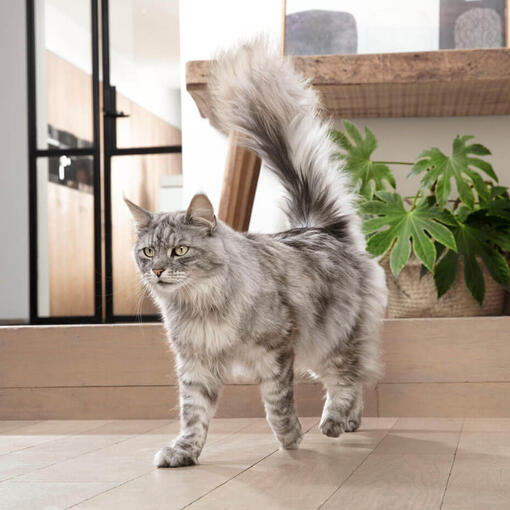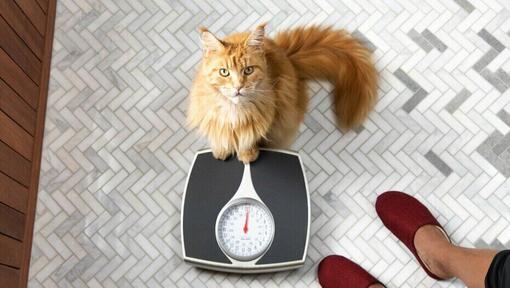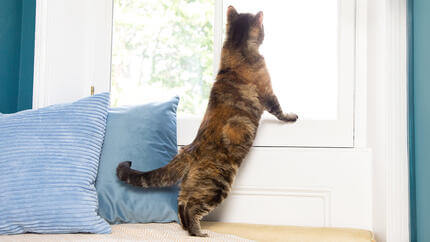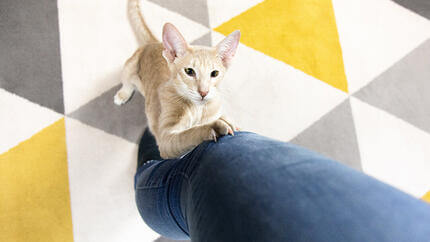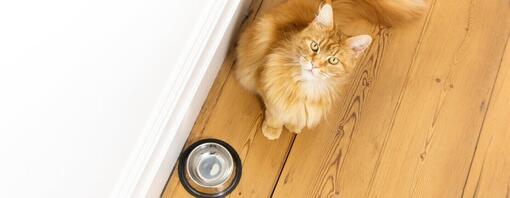
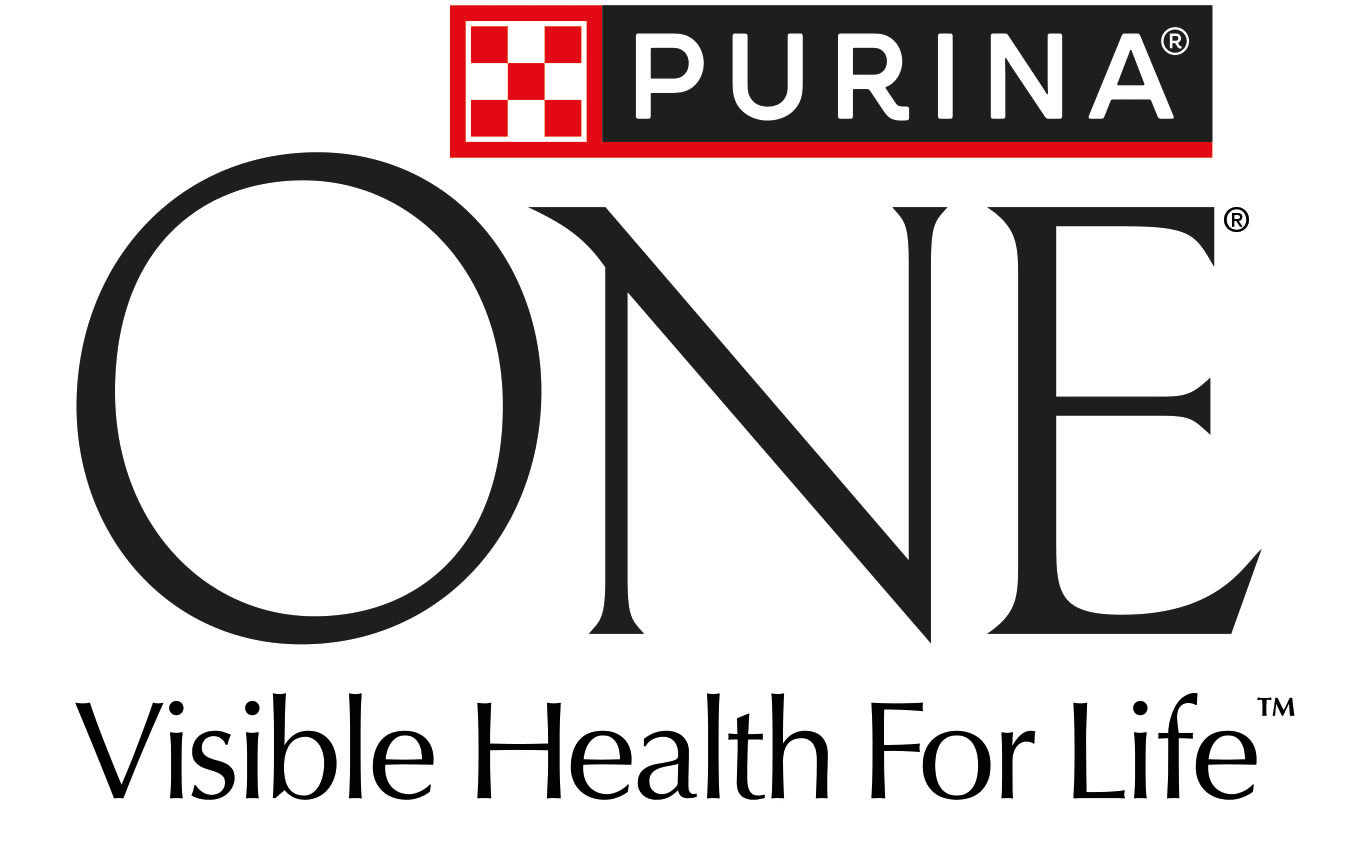
From digestion to immunity, your cat’s gut health plays a major role in their overall health and happiness. Below are 5 simple and effective tips to help you care for the health of your cat’s intestine.
1. A balanced diet
An appropriate well-balanced diet for your cat’s metabolism is a great way to improve your cats’ gut health.
Therefore, choosing a diet adapted to your cat’s needs is a key factor: choosing a cat food specially formulated to help support your cat’s natural defences can help. Consumption of heat-treated lactobacilli has been proven to help support natural antibody production in your cat’s intestinal tract, while Omega-6 acids, and other selected nutrients, help support healthy skin and a radiant coat.
On the contrary an unbalanced diet can be harmful for your cat’s gut health. Avoid all food that could be toxic (such as garlic, chocolate or avocado), food that could cause wind (e.g. cabbage beans) or food that could lead to weight gain (human food tidbits).
2. Grooming
Our cats love being pampered!! Make the most of it and groom them regularly: not only will you love hearing them purr, but by grooming them you will also help prevent them from ingesting large quantities of hair, which can cause constipation and affect your cats gut health.
3. On your marks…Ready? Play!
Exercising holds many benefits: not only does it stimulate your cats intestine, which is useful for regular bowel movements, but it also helps you to keep your cat‘s weight and stress levels under control.
20 minutes of exercise daily, split into two different sessions, will boost your pet’s energy level and strengthen your relationship.
4. Take it easy
She who goes slowly, goes healthily: cats are particularly sensitive to diet changes and modifications. Should you change your pet’s food it is recommended to proceed step by step.
A gradual transition over several days will allow your cats intestine to get used to the new diet and minimise the impact on your cat’s gut health.
5. Water
Our felines, particularly those fed exclusively dry foods, tend not to drink enough water: originating from the desert, they have kept this habit. The lack of sufficient water intake can lead to health risks that impact your cats gut health.
To encourage your cat to drink more regularly place some water bowls in various locations in your home, but remember to keep the water away from your pet’s litter box. The water must be fresh and changed at least twice a day. Some cats prefer running water and will love drinking from a running tap: if this is your pet’s case you could choose to use a water fountain.
And don‘t forget…remember to keep an eye on your pet’s stools, their coat and their behaviour. Cats do not express discomfort and pain the way we humans do, and they tend to hide when they don’t feel well. Pay attention to any subtle changes in their routine and don’t hesitate to visit your vet whenever you are in doubt about the well-being of your pet.
In a nutshell to improve your cats gut health: a good balanced diet, regular grooming, play time and exercise, a progressive transition if you introduce a new diet, and sufficient water.
Shop the Purina ONE® Cat range:
More articles by Purina ONE®


